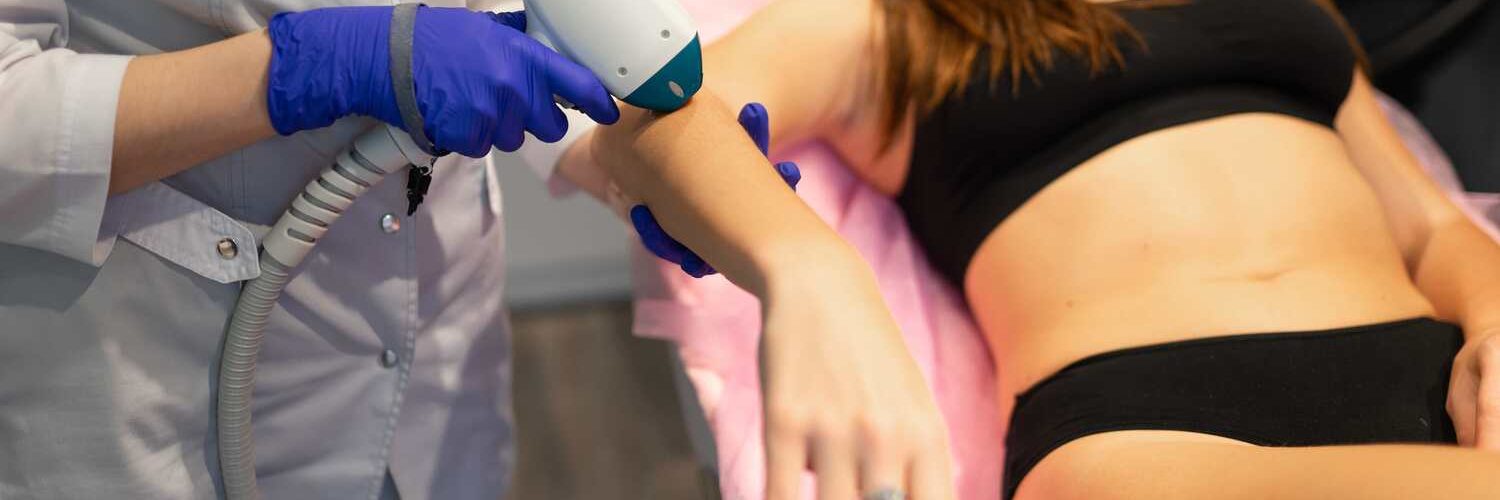
Pregnancy brings about a multitude of changes in a woman’s body that can prompt adjustments to beauty and skincare routines. With hormones fluctuating and skin sensitivity increasing, it’s natural to wonder whether laser hair removal is a safe option for pregnant women. In this article, we’ll break down the risk factors expectant mothers should keep in mind.
Laser hair removal is a cosmetic procedure that employs concentrated light to remove unwanted hair. During the process, a laser emits a light that’s absorbed by the melanin in the hair. This light energy is converted to heat, which damages the hair follicles within the skin that produce hair. Finally, this damage inhibits future growth.
Unlike shaving or waxing, laser hair removal offers a longer-term solution by targeting the roots of hair beneath the skin’s surface. That said, multiple sessions are typically required to achieve optimal results.
Though laser hair removal is generally considered to be a safe procedure, there is a lack of conclusive research attesting to its safety for pregnant women. For this reason, most experts recommend postponing the treatment until after pregnancy.
Some of the risk factors for laser hair removal for pregnant women include:
Pregnancy can affect hair growth profoundly, primarily due to the hormonal changes a woman experiences during this time. Increased levels of estrogen prolong the hair’s growing phase, which can lead to thicker and more voluminous hair. However, this change is usually temporary, and its magnitude can vary from person to person.
It’s important to note that after pregnancy, hormone levels revert to their pre-pregnancy state, which can result in increased hair shedding and even temporary hair thinning, commonly known as postpartum hair loss. Fortunately, hair growth usually returns to its normal cycle within a few months.
Some safe alternatives to laser hair removal during pregnancy include:
After delivering a child, it’s recommended that new mothers wait until their hormone levels stabilize to undergo laser hair removal. The duration of this waiting period can vary widely among individuals, but most providers recommend waiting at least two to three months. And if you breastfeed, experts advise waiting until you stop breastfeeding to receive laser treatment.
Due to the lack of research attesting to its safety for mothers who are breastfeeding, experts generally advise waiting until you’ve finished breastfeeding to undergo laser treatment.
In conclusion, while laser hair removal offers a promising solution for long-term hair reduction, pregnant women and women who are breastfeeding should use other hair removal methods. Alternatives such as shaving, waxing, sugaring, depilatory creams, and tweezing often suffice. And when it comes to postpartum laser hair removal, patience is key.
If you’re interested in eliminating unwanted hair through laser hair removal, look no further than Bella Medspa. Our technicians have helped thousands of patients achieve their cosmetic goals, and they can do the same for you. Book a free consultation with us today to learn more.
Heather joined the Bella Medspa team in January of 2020. After working several years in dental industry and the fitness industry, she decided it was time to put her business management skills and her love for aesthetics to use. She currently manages our six Bella Medspa locations across Southeastern Pennsylvania and is dedicated to helping us build and grow as the world of aesthetics continues to evolve.
Heather joined the Bella Medspa team in January of 2020. After working several years in dental industry and the fitness industry, she decided it was time to put her business management skills and her love for aesthetics to use. She currently manages our six Bella Medspa locations across Southeastern Pennsylvania and is dedicated to helping us build and grow as the world of aesthetics continues to evolve.